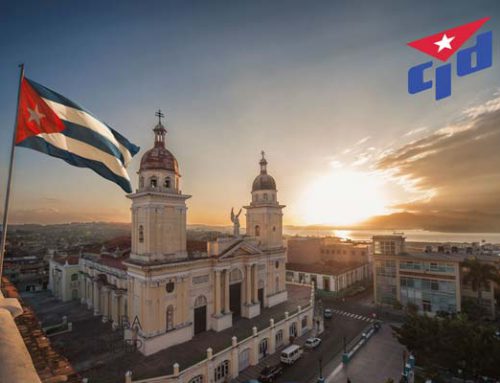On October 1959 the vast majority of the Cuban people saw a Semi-God in Fidel Castro. Whoever doubted or thought otherwise and had the courage to express so would become an enemy of the people, deserving the maximum punishment.
Under those circumstances, one of the leaders of the Revolution, Commander Huber Matos, risked himself to execution for exposing what he suspected was treason to the revolution’s democratic tenets. Matos wanted to alert the Cuban people.
Seven days later, Commander Camilo Cienfuegos, a close friend of Huber Matos from Sierra Maestra who coincided with Matos about communist infiltration, mysteriously disappeared.
On October 21, 1959, only ten months after the revolutionary triumph of January 1959, Huber Matos was arrested in Camagüey after having sent Fidel Castro a resignation letter expressing his disagreement with the course the revolutionary process was taking. In that letter, he pointed out the increasing communist influence and warned Fidel about the terrible consequences Cuba would suffer should that trend not be stopped. That disclosure was a top-line revolutionary leader’s first public alert about what was happening behind de Cuban people’s back.
When Huber Matos died on February 27, 2014, journalist Victor Ariel González wrote the article we reproduce today, October 21, 2017.
Víctor Ariel González
Mi tribute To Huber Matos
Havana, February 28, 2014
I never personally knew Huber Matos Benítez, although I would have wanted to. Since I read that great testimony which is “Cómo llegó la noche” (“How the night arrived”), the courage and civicism of its author’s character impressed me. He was a man who did not give up his principles, even under the most severe circumstances.
Yesterday morning, at 96, this tireless fighter, who even in the last instants of his life wanted a free and prosperous Cuba, died in the USA. With that noble purpose he first joined a guerrilla struggle against dictator Fulgencio Batista, and in 1959 came, triumphant, from Sierra Maestra, turned into a Commander of a revolution that sowed great hopes. But the disappointing truth about that process, revealed almost immediately, showed him that his land’s long road to freedom had only begun, and that the most difficult stretch was ahead.
Because of his ideas, which were incompatible with Fidel Castro’s totalitarianism, Commander Huber Matos was charged with sedition, although he had not risen against the established young power. He lived in political imprisonment for 20 years, until 1979. While many of his comrades in the struggle deposed their morals to worship a Supreme Leader and before the absence of human rights, this Cuban remained loyal to his desire to see his country finally free of all its tyrants. Remaining attached to his ideas, without breaking, turned him into an example of resistance, an icon of dissent.
Even after he left prison, with a battered health, an aged body because of the continuous torture and the lengthy lockup he suffered in Castro’s jails, Huber Matos showed that his so
ul remained intact. His emancipatory essence was not damaged. In exile, sentenced not to live in the country where he was born, he carried out intense political activism which will undoubtedly determine the nation’s future reality. The organization Cuba Independiente y Democrática (CID), which he himself founded, incarnates that desire for emancipation and is presently an important opposition party inside the Island. Its members will have the responsibility to continue defending its illustrious founder’s libertarian spirit.
ul remained intact. His emancipatory essence was not damaged. In exile, sentenced not to live in the country where he was born, he carried out intense political activism which will undoubtedly determine the nation’s future reality. The organization Cuba Independiente y Democrática (CID), which he himself founded, incarnates that desire for emancipation and is presently an important opposition party inside the Island. Its members will have the responsibility to continue defending its illustrious founder’s libertarian spirit.
Huber Matos’ name came to me with the following sentence: “don’t believe what they tell you in school about this man.” Then, I saw it again in history books imposed by the Castro ideology, but fortunately I had been warned. Then I knew how to identify the lie, and the couple of infamous lines official texts devoted him were nothing but empty words. Later, his testimony came to my hands, and more than revealing it inspired the author of this article. Someday history told to children and youngsters in Cuba will honor this patriot as he deserves.
May he now rest in peace, as other will continue the struggle.
By Víctor Ariel González
Regresar al blog CubaCID
Regresar a página central CubaCid.org


Deja tu comentario